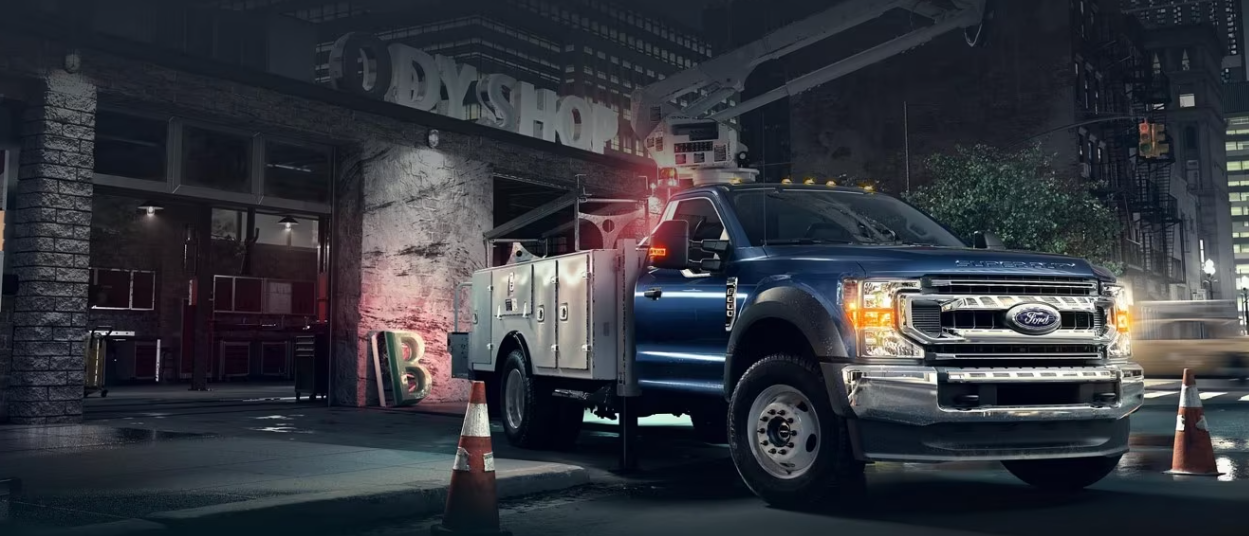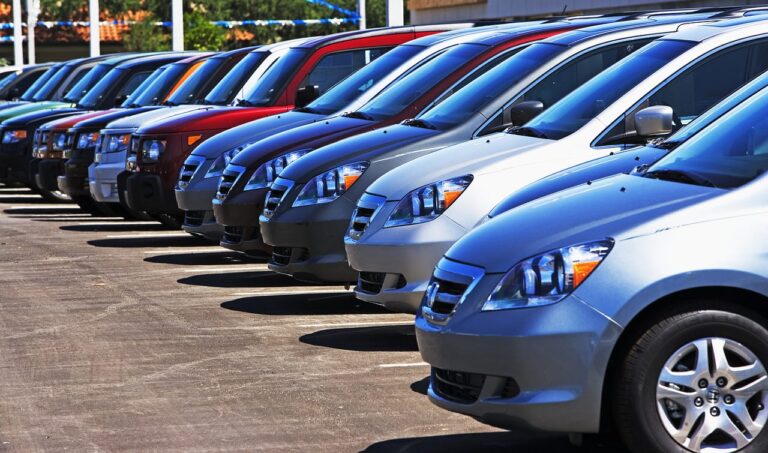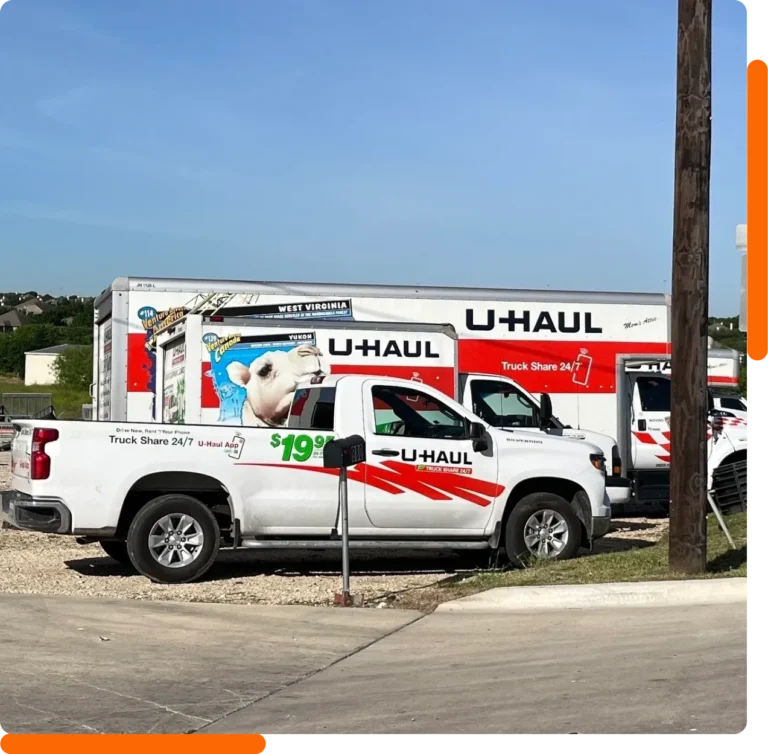Navigating the Sunshine State’s Truck Market: A Comprehensive Guide to Used Trucks for Sale in Florida
Navigating the Sunshine State’s Truck Market: A Comprehensive Guide to Used Trucks for Sale in Florida
Florida, the Sunshine State, is more than just pristine beaches and theme parks. It’s a bustling hub of commerce, construction, agriculture, and a vibrant lifestyle that often necessitates the power, versatility, and reliability of a truck. From the sprawling citrus groves of Central Florida to the booming construction sites of Miami, and from the fishing charters in the Keys to the logistics networks crisscrossing the state, trucks are the backbone of Florida’s economy and daily life. This constant demand, combined with a unique climate and a transient population, creates a dynamic and often advantageous market for used trucks.
For anyone considering purchasing a used truck in Florida, whether for work, recreation, or personal transport, understanding this unique market is crucial. This comprehensive guide will delve into why Florida is an excellent place to buy a used truck, the types of vehicles available, where to find them, and a detailed step-by-step process to ensure you drive away with the right truck at the right price.
Why Florida is a Prime Market for Used Trucks
Several factors converge to make Florida an ideal place to find a used truck:
-
Economic Drivers: Florida’s economy is robust and diverse.
- Construction Boom: Rapid population growth and development across the state mean constant demand for construction materials and equipment, leading to a high turnover of work trucks, dump trucks, and utility vehicles.
- Agriculture: From citrus and sugarcane to cattle ranching, Florida’s agricultural sector relies heavily on trucks for transport, hauling, and farm work.
- Tourism & Logistics: The state’s massive tourism industry and its role as a major port state (Jacksonville, Miami, Tampa) drive a massive logistics and transportation sector, creating a steady supply of commercial trucks, box trucks, and vans.
- Small Businesses: A thriving small business ecosystem, from landscaping to plumbing, constantly needs and cycles through work vehicles.
-
Climate Advantage – Less Rust: Unlike states in the Rust Belt or those with harsh winters, Florida’s warm, humid climate means significantly less road salt is used. This dramatically reduces the risk of severe rust and corrosion on vehicle undercarriages, frames, and body panels, preserving the structural integrity and longevity of a truck. While coastal areas might see some salt air exposure, overall, Florida trucks tend to be in better condition beneath the surface.
-
High Vehicle Turnover: Florida’s large and often transient population, including snowbirds, military personnel, and those relocating for work, often leads to a higher turnover of vehicles. People move in, buy a truck, and then move out, selling their vehicle relatively quickly. This creates a consistent supply of used trucks on the market.
-
Diverse Inventory: Given the varied needs across the state, the range of used trucks available is vast. You’ll find everything from light-duty pickups used for personal commuting to heavy-duty commercial vehicles fresh off a fleet rotation.
Types of Used Trucks You’ll Find in Florida
The Florida used truck market caters to every need, from the casual weekend warrior to the full-time fleet operator.
-
Light-Duty Pickups (e.g., Ford F-150, Chevy Silverado 1500, Ram 1500, Toyota Tundra, Nissan Titan):
- Purpose: These are the most common and versatile trucks, perfect for personal use, light hauling, towing boats or small trailers, and everyday driving. They often come in various cab configurations (regular, extended, crew) and bed lengths.
- Florida Appeal: Popular for recreational activities (fishing, boating, camping), light landscaping businesses, and general family transport. You’ll find a vast selection from recent models to older, more budget-friendly options.
-
Heavy-Duty Pickups (e.g., Ford F-250/350/450, Chevy Silverado/GMC Sierra 2500/3500, Ram 2500/3500):
- Purpose: Designed for serious towing and hauling, these trucks are the workhorses of many industries. They feature stronger frames, larger engines (often diesel), and higher payload capacities.
- Florida Appeal: Essential for construction companies, large-scale landscaping, horse trailers, RV towing, and heavy equipment transport. Many come from commercial fleets that maintain them meticulously.
-
Commercial & Work Trucks (e.g., Box Trucks, Flatbeds, Utility Trucks, Cargo Vans):
- Purpose: These are specialized vehicles built for specific business functions – delivery, moving, service calls, transporting materials.
- Florida Appeal: High demand from small to medium-sized businesses across industries like plumbing, HVAC, electrical, delivery services, and general contracting. Fleet sales are common, offering well-maintained vehicles.
-
Medium & Heavy-Duty Commercial Trucks (e.g., Dump Trucks, Semi-Trucks, Specialty Vehicles):
- Purpose: These are the big rigs that move mountains of material or vast amounts of goods across the state and country.
- Florida Appeal: Crucial for large construction projects, waste management, agricultural transport, and long-haul logistics. Many come from large fleet operators or government auctions.
Where to Find Used Trucks for Sale in Florida
The diverse supply of used trucks in Florida means multiple avenues for purchase, each with its own advantages and disadvantages.
-
Franchise Dealerships (e.g., Ford, Chevrolet, Ram, Toyota, Nissan):
- Pros: Often have certified pre-owned (CPO) programs with warranties, extensive inventory, financing options, and a professional sales process. Vehicles are typically inspected and reconditioned.
- Cons: Generally higher prices than other sources.
- Florida Specific: Large dealerships in major metropolitan areas like Orlando, Tampa, Miami, Jacksonville, and Fort Lauderdale will have the widest selection.
-
Independent Used Car Dealerships:
- Pros: Wider variety of makes and models, potentially more flexible pricing, and sometimes more specialized inventory (e.g., only trucks).
- Cons: Quality can vary significantly; warranties might be limited or absent; financing options may be less competitive than franchise dealers.
- Florida Specific: Abundant throughout the state, from small lots to large independent superstores. Due diligence is paramount here.
-
Online Marketplaces & Classifieds (e.g., Autotrader, Cars.com, CarGurus, Craigslist, Facebook Marketplace, eBay Motors):
- Pros: Vast selection, ability to filter by specific criteria, direct communication with sellers, potential for lower prices from private sellers.
- Cons: Scams are possible; no warranties; condition "as-is"; requires more effort for inspection and paperwork.
- Florida Specific: Extremely popular for private sales due to the high turnover. Be cautious and prioritize in-person inspection.
-
Auctions (Public, Government, Repossessed, Fleet):
- Pros: Potential for significant savings, especially on fleet vehicles or repossessions. Large volume of inventory.
- Cons: "Buyer beware" environment – vehicles sold "as-is," often without opportunity for extensive inspection or test drive; requires quick decision-making; fees can add up.
- Florida Specific: Regular auctions are held across the state for government surplus, police impounds, and commercial fleet liquidations. A good option for experienced buyers.
-
Private Sellers:
- Pros: Often the lowest prices as there’s no dealer markup; direct negotiation; opportunity to learn about the vehicle’s history from the owner.
- Cons: No warranties; "as-is" sale; requires buyer to handle all paperwork; scams are possible.
- Florida Specific: Many individuals selling due to relocation, upgrading, or lifestyle changes. A common and often rewarding route if done carefully.
The Buying Process: A Step-by-Step Guide for Florida Used Trucks
Regardless of where you buy, a structured approach will help you secure the best deal and avoid pitfalls.
-
Define Your Needs and Budget:
- Purpose: What will you use the truck for? Hauling, towing, daily commute, off-roading, commercial work?
- Capacity: What payload and towing capacity do you need? This dictates whether you need a light-duty or heavy-duty model.
- Features: What specific features are important (e.g., 4WD, crew cab, specific bed length, technology package)?
- Budget: Be realistic about the purchase price, but also factor in insurance, registration, potential repairs, and fuel costs. Don’t forget sales tax (6% in Florida).
-
Research, Research, Research:
- Models & Brands: Look into specific models that fit your needs. Read reviews, check reliability ratings, and research common issues for that year/make/model.
- Pricing: Use online tools (Kelley Blue Book, Edmunds, NADAguides) to determine fair market value based on mileage, condition, and features. Compare prices from different sellers in your area.
- Florida Specific: Be aware of potential add-ons or "dealer fees" common in Florida. Ask for an "out-the-door" price.
-
Initial Contact & Pre-Screening:
- Online Inquiries: Ask sellers for detailed photos, maintenance records, and the VIN (Vehicle Identification Number).
- Specific Questions: For Florida trucks, ask about:
- Its history in Florida (was it always here or recently imported?).
- Any flood damage (especially after hurricanes).
- If it was a fleet vehicle, ask about its service schedule.
-
Vehicle History Report (Crucial!):
- Once you have the VIN, invest in a CarFax or AutoCheck report. This report can reveal:
- Accident history (including severity).
- Title issues (salvage, flood, rebuilt, lemon).
- Odometer discrepancies.
- Service history.
- Number of previous owners.
- Recall information.
- Florida Specific: Pay close attention to "flood damage" or "saltwater damage" reports, especially for trucks from coastal areas or those sold shortly after a major hurricane.
- Once you have the VIN, invest in a CarFax or AutoCheck report. This report can reveal:
-
In-Person Inspection (Your Checklist):
- Exterior: Check for dents, scratches, rust (especially around wheel wells, rocker panels, and the bed), uneven paint (indicating repairs), and panel gaps. Ensure all lights work.
- Tires: Check tread depth, uneven wear (sign of alignment issues), and tire age.
- Undercarriage: Look for leaks (oil, coolant, transmission fluid), rust on the frame or suspension components, and damage from off-roading or heavy use. Even in Florida, some rust can develop, particularly if exposed to saltwater or neglected.
- Engine Bay: Look for leaks, frayed belts, corroded battery terminals, and signs of poor maintenance. Check fluid levels and clarity.
- Interior: Check for wear and tear on seats, carpets, and dashboard. Ensure all electronics (AC, radio, power windows/locks, navigation) work. Check for strange odors (smoke, mildew).
- Bed: Look for damage, rust, and signs of heavy use (if that’s a concern).
-
The Test Drive:
- Drive on various road types (city, highway, bumps, turns) to assess performance.
- Listen for unusual noises (engine, transmission, suspension, brakes).
- Check acceleration, braking (smooth, no pulling), and steering (no looseness or pulling).
- Test all gears (automatic and manual).
- Ensure the AC works effectively – a must-have in Florida!
-
Pre-Purchase Inspection (PPI) by a Trusted Mechanic:
- This is non-negotiable for a used truck. Take the truck to an independent mechanic you trust, even if the seller offers their own. A PPI typically costs $100-$200 but can save you thousands in future repairs.
- They will put the truck on a lift, check for hidden issues, scan for diagnostic trouble codes, and provide an objective assessment of the vehicle’s condition.
-
Negotiation:
- Armed with your research and the PPI report, negotiate confidently.
- Point out any issues found during inspection to justify a lower price.
- Be prepared to walk away if the price isn’t right or if the seller is uncooperative.
-
Financing & Paperwork:
- Financing: Get pre-approved for a loan from your bank or credit union before visiting dealerships to compare rates.
- Title Transfer: Ensure the seller has a clear title, free of liens. In Florida, titles are processed through the Department of Highway Safety and Motor Vehicles (FLHSMV).
- Bill of Sale: Get a detailed bill of sale with vehicle information, purchase price, and buyer/seller details.
- Registration & Plates: You’ll need to register the truck and get new license plates (or transfer old ones) at a local tax collector’s office. You’ll need proof of insurance.
- Insurance: Obtain insurance coverage before driving the truck off the lot. Florida requires minimum Personal Injury Protection (PIP) and Property Damage Liability (PDL) coverage.
Post-Purchase Considerations
Once you’ve purchased your used truck, a few immediate steps are recommended:
- Initial Maintenance: Even if the records look good, it’s wise to perform an oil change, check all fluids, replace air filters, and inspect belts and hoses.
- Deep Clean: Give your new-to-you truck a thorough cleaning, inside and out.
- Personalize: Now the fun begins! Add accessories, customize, and make it your own.
Conclusion
The market for used trucks for sale in Florida is ripe with opportunity. Thanks to a robust economy, a favorable climate that minimizes rust, and a dynamic population, buyers have access to a diverse and well-maintained inventory. By understanding the unique aspects of the Florida market, knowing where to look, and diligently following a comprehensive buying process – from thorough research and history checks to professional inspections and smart negotiation – you can confidently navigate the Sunshine State’s truck landscape. With the right approach, you’ll be driving away in a reliable, versatile, and cost-effective used truck that perfectly suits your needs, ready for Florida’s roads, job sites, and adventures.


